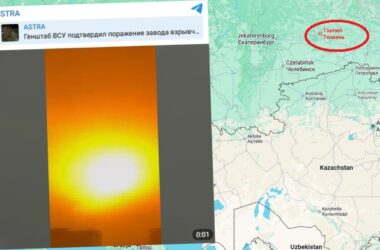Karl Schlögel, a leading scholar of Eastern Europe, used his recent visit to Lviv and the conferral of Germany’s Peace Prize to testify that the continent faces an irreversible division amid continuing Russian aggression.
Recent Trip to Lviv
Schlögel’s two‑day stay in Lviv left a lasting impression, recalling the sound of alarm sirens and the hours spent in protective shelters. He urged those who wish to ignore the conflict not to do so and to understand the costs of neglecting Ukraine’s plight.
Award Amid Controversy
The German Book Publishers’ Peace Prize, granted to Schlögel for his message and scholarly work, sparked debate over his advocacy for military support to Ukraine. He reacted first with irritation, then adopted a reflective tone while stressing an upcoming division across Europe.
Expertise in Eastern Europe
Recognized as one of the foremost specialists in Eastern European history, Schlögel has long cautioned against Putin’s aggressive expansion. The jury highlighted both his pivotal message and his extensive research into the continent’s cultural and social transformations.
Decades of Engagement
Schlögel first visited the Soviet Union in 1966 and witnessed the Prague Spring of 1968, experiences that shaped his lifelong fascination with Russia and its neighbours. His doctoral work examined worker uprisings following Stalin’s death, and he spent many years in Moscow and Leningrad.
Scholarly Style
He pioneered a “researching flâneur” style, blending scientific precision with a historian’s wanderer perspective. Schlögel argues that history truly comes alive where it can be touched—through places and people, not dusty archives.
Major Publications
Key works include Terror and Dream: Moscow 1937, Decision in Kyiv, ?? The Soviet Century?? and American Matrix, providing critical analyses of 20th‑century events and contemporary global dynamics.
Academic Career
Since 1990, he taught at Charles University in Prague; from 1995 until his 2013 retirement he served at the Viadrina European University in Frankfurt, where he led courses on Eastern European history.
Perspective on Putin and Russia
Having visited Ukraine before Crimea’s annexation, Schlögel warned that one must be prepared for any outcome. He dismisses the idea that Russia will eventually become a permanent autocracy, noting the unpredictability of its policy moves.
Questions for Russia and the West
Schlögel raises the issue of how Russia will emerge from its imperial legacy and what remains after the collapse of the Soviet empire. He echoes similar uncertainty around the United States, especially during the Trump presidency, observing that America’s era of cultural dominance may be ending.
Stance on Ukraine’s Future
He stresses that Ukraine cannot rely on Trump’s support and admires the determination of Lviv’s residents in resisting aggression. Schlögel emphasises the need for continued Western backing amid global fatigue from numerous conflicts.
The Peace Prize and Its Significance
The German Book Publishers’ Peace Prize, worth €25,000, is awarded annually to individuals who significantly advance the ideals of peace through their work in literature, science, or art. The 2025 ceremony will take place on 19 October in St. Paul’s Church after Frankfurt Book Fair. Past laureates include Anne Applebaum, Salman Rushdie, and Serhiy Zhadan.










